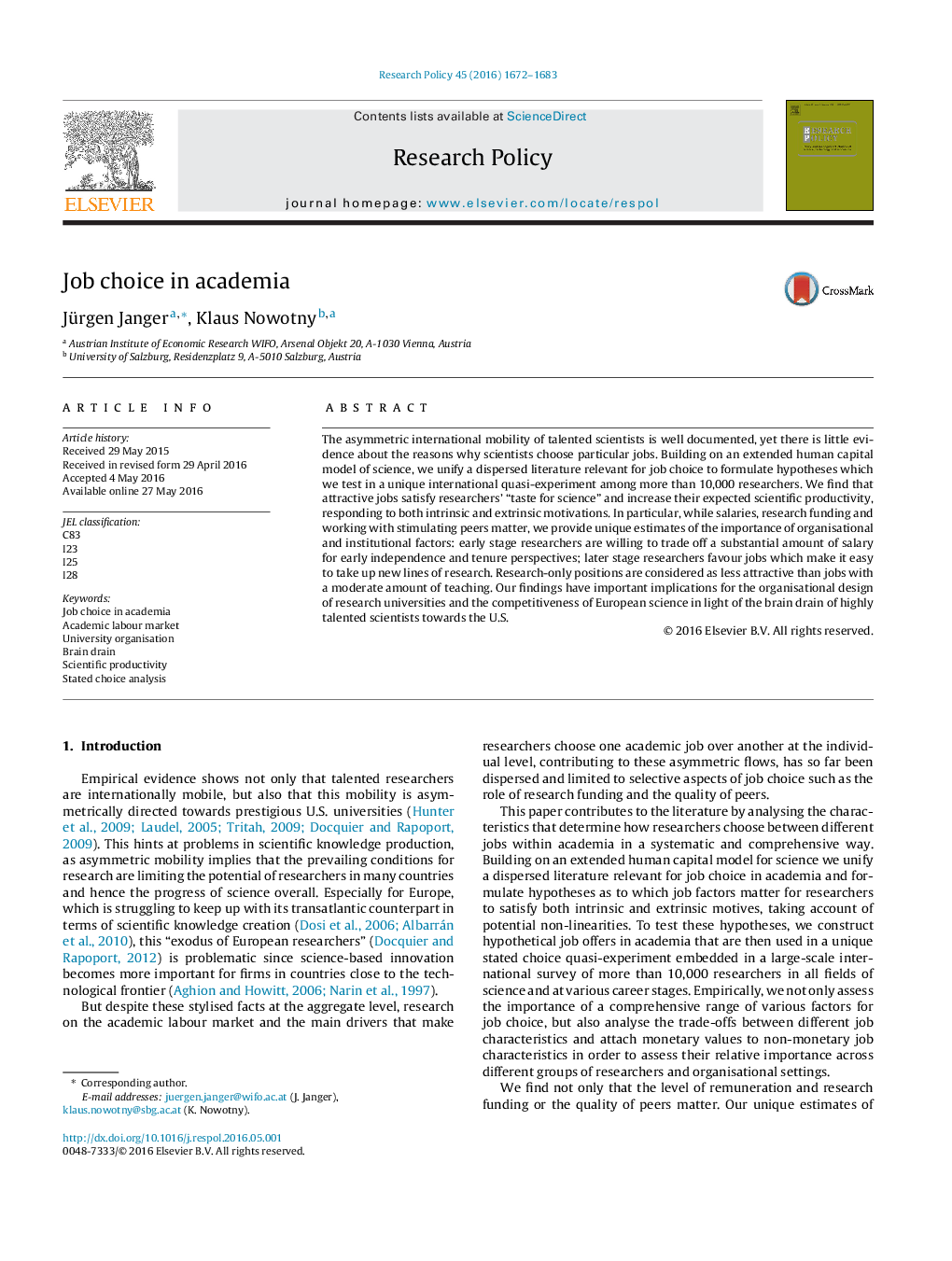| Article ID | Journal | Published Year | Pages | File Type |
|---|---|---|---|---|
| 5103972 | Research Policy | 2016 | 12 Pages |
The asymmetric international mobility of talented scientists is well documented, yet there is little evidence about the reasons why scientists choose particular jobs. Building on an extended human capital model of science, we unify a dispersed literature relevant for job choice to formulate hypotheses which we test in a unique international quasi-experiment among more than 10,000 researchers. We find that attractive jobs satisfy researchers' “taste for science” and increase their expected scientific productivity, responding to both intrinsic and extrinsic motivations. In particular, while salaries, research funding and working with stimulating peers matter, we provide unique estimates of the importance of organisational and institutional factors: early stage researchers are willing to trade off a substantial amount of salary for early independence and tenure perspectives; later stage researchers favour jobs which make it easy to take up new lines of research. Research-only positions are considered as less attractive than jobs with a moderate amount of teaching. Our findings have important implications for the organisational design of research universities and the competitiveness of European science in light of the brain drain of highly talented scientists towards the U.S.
